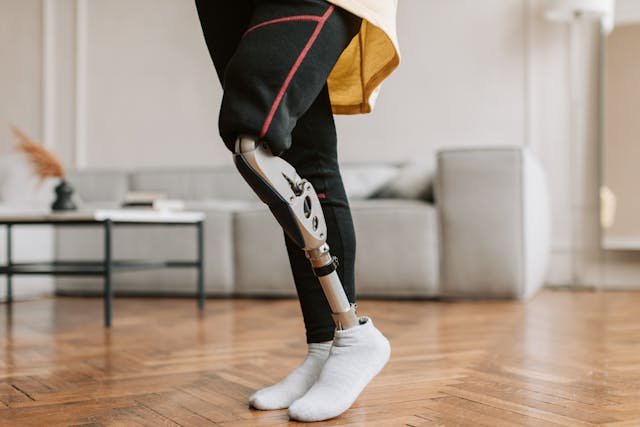Pediatric prosthetics have always been more than just mechanical tools. For children born with congenital limb differences, prosthetics are part of how they grow, move, explore, and express themselves. But just like children, prosthetics need to evolve. They must adapt to changing bodies, new technologies, and the emotional needs of each child. And now, with exciting breakthroughs in design, materials, and technology, the future of pediatric prosthetic care looks more promising than ever.
At Robobionics, we understand that a child’s prosthetic journey is deeply personal. It starts with comfort and function, but over time, it becomes about freedom and identity. As science and technology continue to move forward, the way prosthetics are made, fitted, and used will look very different in the coming years. In this article, we’ll explore where the future is heading—and how children with congenital conditions can benefit from a world of better, smarter, and more inclusive prosthetic care.
Smarter Prosthetics with Built-In Learning
One of the most exciting trends in pediatric prosthetics is smart technology. These are prosthetics that learn, respond, and adapt. They go beyond basic movement to become an active part of the child’s body. Smart prosthetics use sensors, AI, and machine learning to understand how a child moves, then adjust their response in real time.
Personalized Motion Through AI
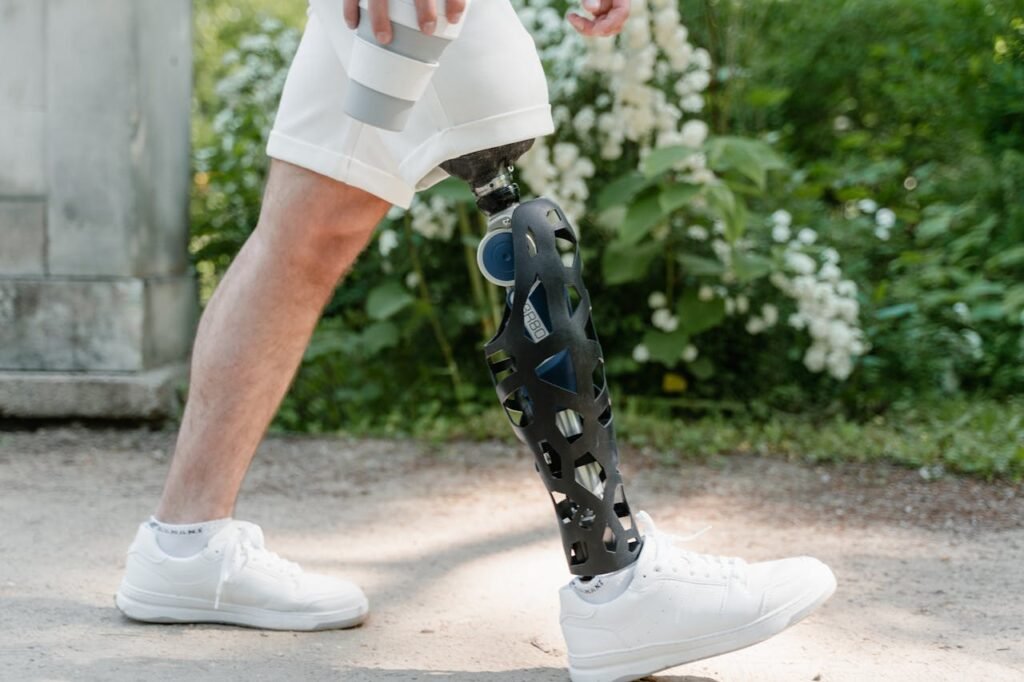
With artificial intelligence becoming more accessible, prosthetic devices can now track patterns in movement and behavior. For example, if a child uses their prosthetic hand in a certain way while eating or playing, the system can begin to predict that motion and smooth it out. This means fewer stumbles and more confidence during daily use.
This learning process happens passively, without the child needing to do anything special. The prosthetic becomes better at helping with small tasks, making the device feel more natural. As the child grows, the AI adapts too—so there’s less frustration and more freedom to move.
At Robobionics, we are working on integrating AI into our next-generation devices. These features are designed to match each child’s unique way of moving and adjusting, especially during early learning stages.
Sensors That Offer Real-Time Feedback
Modern prosthetics can now include sensors that give feedback to the user. For example, a hand prosthetic might send gentle vibration cues when it touches something too hard or soft. This kind of touch awareness, even if it’s basic, helps children understand how much pressure to use when picking up a toy, holding a pencil, or opening a door.
Children who grow up with these smart features learn faster and rely less on vision or external support. They start to trust their prosthetic more as a part of their body, not just an attachment.
Robobionics continues to develop sensory-enabled designs that teach children to interact with the world in a more responsive way. These systems promote natural use and reduce hesitation or uncertainty.
Adapting in Real Time to Activities
One size never fits all—especially with kids. Children may play a sport in the morning, draw in the afternoon, and ride a bicycle in the evening. In the future, smart prosthetics will be able to switch modes depending on the child’s activity. Whether it’s a stronger grip for sports or fine motor control for crafts, adaptive programming will support their full day, not just one task.
This helps avoid the need for multiple prosthetics or separate attachments. Instead, one device becomes flexible enough to handle all kinds of movement.
At Robobionics, we’re developing intuitive switching systems that let kids move from one task to another without needing complex instructions or caregiver help.
3D Printing for Faster, Personalized Fit
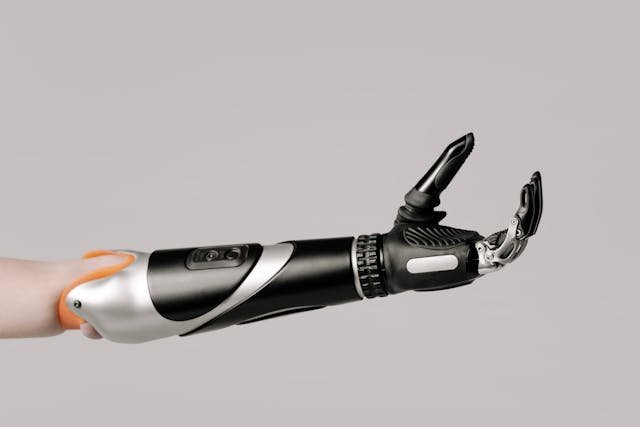
Another trend shaping the future is how prosthetics are made. Traditional prosthetics take time, require multiple visits, and involve manual molding. But 3D printing is changing that. This technology allows for faster production, better customization, and lower costs—making quality care more accessible for every family.
Rapid Fabrication for Growing Bodies
Children grow quickly, and so do their limbs. That means prosthetics need to be replaced or refitted often. With 3D printing, new sockets or parts can be printed in just a few hours instead of weeks. This makes it easier to keep up with growth without long waiting periods.
Quick turnaround is not just convenient—it reduces frustration for children who outgrow their devices and want to stay active. It also helps caregivers manage appointments, school schedules, and therapy needs with less disruption.
At Robobionics, we’ve embraced 3D printing for both temporary and permanent prosthetic solutions. We design sockets that grow with the child, and replace parts faster without compromising quality.
Fully Customized Fit for Better Comfort
Every child’s body is different—especially those with congenital limb differences. Some may have shorter residual limbs, unique muscle development, or sensitive skin. 3D scanning and printing allow us to match the exact shape and size of a child’s limb. This leads to a more comfortable and secure fit, which means better use and longer wear time.
Children who feel comfortable in their prosthetic are more likely to use it every day. It becomes a trusted part of their routine, not something they’re forced to wear. This improves confidence and independence over time.
Robobionics uses 3D scanners to capture precise limb measurements and design sockets with smooth edges, pressure relief areas, and breathable structures.
Creative Design and Personal Expression
Prosthetics are no longer just functional—they can also be fun and stylish. With 3D printing, children can choose colors, patterns, or even themes that reflect their personality. Whether it’s a superhero design, floral artwork, or a favorite color, the prosthetic becomes something they are proud to wear.
This freedom of expression is especially important for children navigating social situations, such as school or public events. A prosthetic that looks exciting becomes a conversation starter, not something to hide.
At Robobionics, we encourage children to co-design their prosthetics with our team. This gives them ownership and builds a stronger emotional bond with their device.
Gamified Rehabilitation and Learning
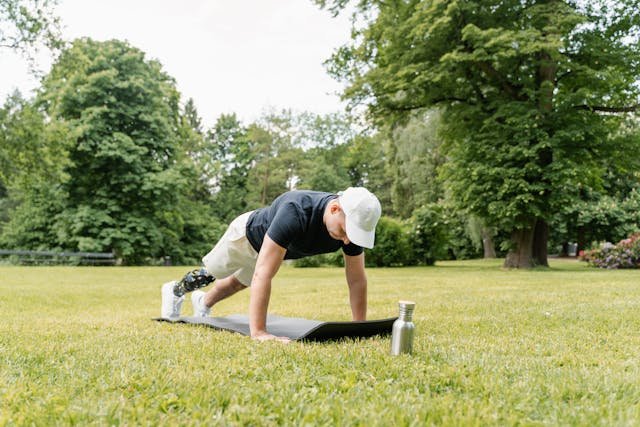
Rehabilitation is a key part of pediatric prosthetic use. But traditional therapy can be repetitive, tiring, and difficult for young children to stay engaged with. The future of therapy is interactive, fun, and designed to feel like play. Gamified learning is quickly becoming the new standard.
Interactive Games That Teach Movement
New rehabilitation platforms include games that respond to prosthetic movement. Children can play video games, explore virtual worlds, or complete challenges using their prosthetic. These games are designed to improve control, accuracy, and coordination—without feeling like traditional exercises.
The more the child plays, the more they learn. Over time, they become more comfortable with using the device in real-world settings.
Robobionics offers gamified home rehab tools that sync with our Grippy™ hand. These games are designed to be age-appropriate and rewarding while supporting motor learning.
Positive Reinforcement That Builds Confidence
Gamified therapy uses a reward system. Every correct movement earns points, stars, or progress toward a goal. This positive reinforcement keeps children motivated. They begin to associate prosthetic use with success and fun, not frustration.
Parents also benefit from gamified systems. They can track progress and support therapy goals at home, turning rehab into a family experience.
Robobionics’ interactive platforms include tracking dashboards that help families and therapists understand which activities work best and where support is still needed.
Remote Access for Families in All Areas
One major advantage of gamified therapy is that it can be done from home. Not every family has easy access to a prosthetic clinic or physical therapist. With smart games and mobile-based training, children can continue rehab even if they live far from the city.
This makes high-quality care more inclusive and accessible. Children in rural areas or with limited transportation can still receive the same quality of learning and support.
At Robobionics, we’re building mobile-compatible therapy systems that bring advanced training tools to every home in India—regardless of geography.
Psychological and Social Trends That Shape Prosthetic Use
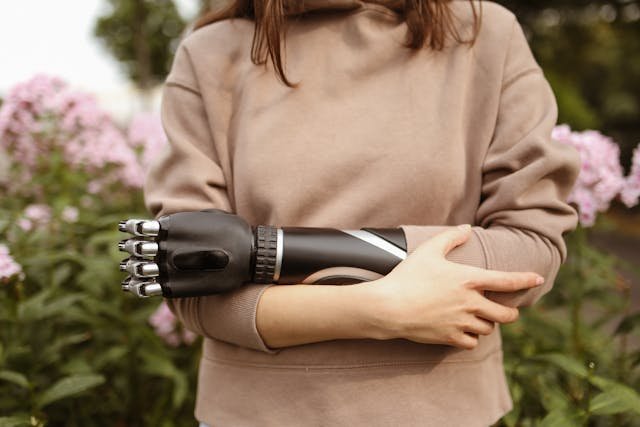
As prosthetics evolve, so do the emotional and social needs of the children who use them. In the future, psychological care and peer support will play an even bigger role in helping children with congenital conditions adapt and thrive.
Emotional Health as Part of Care
Children with limb differences may face emotional challenges related to self-image, identity, or social acceptance. In the future, prosthetic care will include regular emotional check-ins, not just physical assessments. This support will help children talk about their feelings and develop resilience.
Therapists, prosthetists, and families will work together to create a safe, understanding environment where every child feels heard.
At Robobionics, we already include emotional support as part of our fitting process. We believe every child deserves to feel proud of who they are—prosthetic or not.
Peer Mentorship and Shared Experiences
Children often learn best from each other. Future prosthetic programs will include peer mentorship—older children or teens with similar conditions helping younger kids adapt. These mentors share stories, answer questions, and serve as positive role models.
This support is especially helpful for children entering school or facing new challenges. Knowing someone else has walked the same path can be deeply encouraging.
Robobionics is building community programs that connect families and young users for regular meetups and shared activities. These connections create lasting bonds and real-life confidence.
Social Inclusion Through Awareness and Education
As society becomes more aware of limb differences and disability inclusion, the role of education will grow. Schools, public spaces, and caregivers will receive better tools and training on how to support children with prosthetics.
This creates a world where children feel less like “the only one” and more like part of a larger, supportive community.
Robobionics provides awareness workshops for schools and partners with educators to create learning-friendly environments for children with limb differences.
Innovations in Materials for Comfort and Flexibility
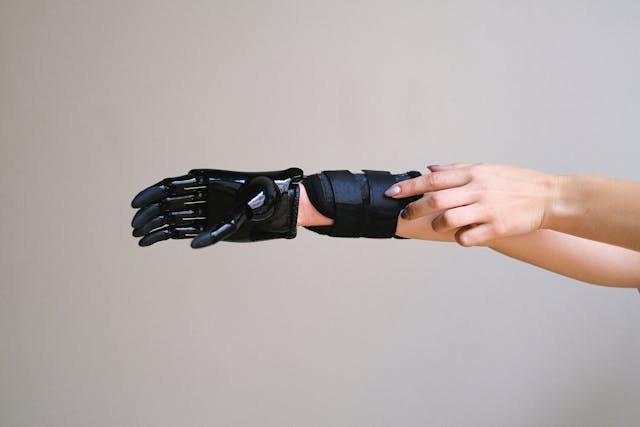
The future of pediatric prosthetics isn’t just shaped by technology—it’s also shaped by what the prosthetic is made of. Materials play a huge role in how comfortable, light, and safe a prosthetic feels on a growing child’s body. As innovation in materials continues to evolve, new options are emerging that are softer, more durable, and far better suited for a child’s active lifestyle.
Lightweight Materials That Move With the Body
Traditional prosthetics, especially those made with metal or hard plastic, can feel heavy and rigid—especially for younger children. Newer materials like carbon fiber blends and flexible polymers are much lighter while still being strong. These modern materials reduce strain on the body and allow children to move more freely. A lighter device encourages longer wear time, especially during school or play.
This weight reduction is especially important for children with shorter residual limbs or weaker muscle groups. Less energy is needed to move the device, and the child is less likely to get tired or frustrated. It also improves posture and reduces the risk of long-term discomfort.
At Robobionics, we are incorporating these next-generation materials into our pediatric models. Each component is designed to provide function without adding unnecessary weight or stress.
Soft Liners and Skin-Friendly Interfaces
Children with congenital limb differences often have sensitive skin or smaller residual limbs. That’s why the inside of the prosthetic—the part that touches the skin—is just as important as the outside. New skin-friendly liners are now being made from breathable, medical-grade silicone and gel blends that adapt to movement while reducing friction.
These liners not only cushion the limb but also absorb sweat, prevent irritation, and reduce the chance of blisters. Some advanced liners even contain cooling agents to improve comfort during long wear.
Robobionics fits every child with custom-designed liners that are soft, flexible, and adapted to their unique limb shape. Our goal is to make sure the prosthetic feels as natural as possible from the very first use.
Eco-Friendly and Sustainable Materials
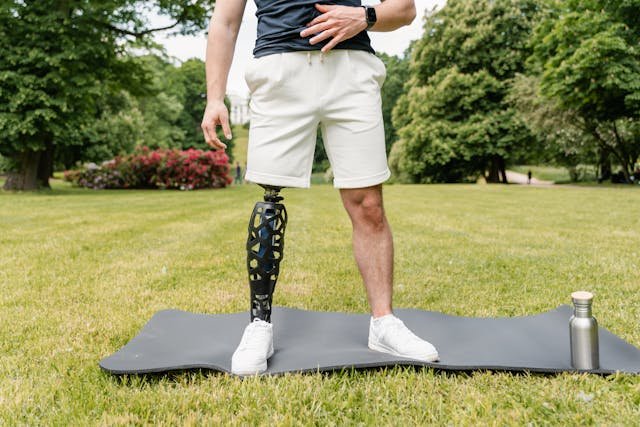
As more focus is placed on sustainability, the materials used in prosthetics are also changing. The future of pediatric prosthetics will likely include more eco-friendly options—bioplastics, recycled polymers, and biodegradable materials. These not only reduce environmental impact but also lower manufacturing costs, making prosthetics more affordable for families.
At Robobionics, we are actively researching sustainable manufacturing methods that align with India’s goals for self-reliance and eco-conscious innovation. Our vision is to create solutions that are kind to the planet while still delivering excellence in design and comfort.
Customization and Modular Design for Growing Needs
One of the greatest challenges in pediatric prosthetics is growth. A child’s limb, body, and needs are constantly changing. What fits today may be too small next year—or even in a few months. Future-ready prosthetic systems are modular by design, making it easier to upgrade parts, swap components, and adapt quickly as the child grows.
Modular Systems That Evolve Over Time
Instead of building a brand-new prosthetic every time a child grows, modular systems allow for the replacement of only the necessary parts. The socket, joints, or terminal device can be swapped out while keeping the core structure the same. This reduces cost, saves time, and minimizes interruptions to the child’s routine.
These modular parts also support changes in activity. A child may need a basic hand for school, a different grip for drawing, and a sport-optimized attachment for the weekend. Switching between these parts should be simple and child-friendly.
Robobionics is leading modular innovation in India, offering a range of smart components that snap or slide into place easily—without requiring a clinic visit every time.
Adjustable Fit for Rapid Growth Spurts
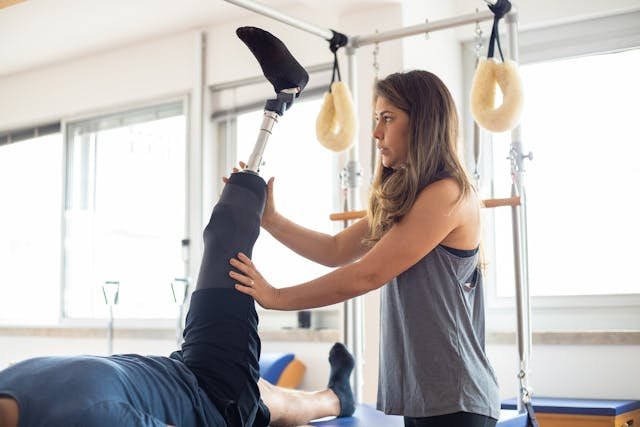
Children don’t grow in predictable ways. A sudden growth spurt can cause discomfort if the prosthetic becomes too tight or misaligned. That’s why new designs include adjustable elements—straps, expandable sockets, and telescoping limbs—that can be quickly adapted by a parent or caregiver at home.
This flexibility is especially important for children between the ages of 3 and 10, when limb length and bone structure change the most. Having a prosthetic that adapts in real-time means fewer clinic visits and a happier, more active child.
At Robobionics, we use soft shells and dynamic designs that grow with your child. These systems are created with long-term comfort and flexibility in mind.
Personalized Appearance That Grows With Identity
Customization is not just about function—it’s also about feeling seen and understood. As children grow older, they want their prosthetic to reflect who they are. That could mean a different color scheme, a new design pattern, or even a favorite cartoon theme. Having a prosthetic that grows with both the body and the personality creates a stronger emotional connection to the device.
We see this most clearly during school-age years and adolescence, when self-image becomes a major part of identity. Future prosthetics will offer more personalized style options, helping children wear their devices with pride instead of discomfort.
Robobionics offers in-house customization, including color choices, skin tones, patterns, and character themes—all designed with the child’s input. Because when kids love how something looks, they’re more likely to love how it works.
Conclusion
The future of pediatric prosthetic adaptation is bright, bold, and deeply child-centered. With smarter technology, faster production, and better emotional support, children with congenital limb differences are stepping into a world that sees them not as limited—but as limitless.
At Robobionics, we are proud to lead this change. Every device we create is made with the future in mind. Our mission is to empower children not just to use prosthetics, but to thrive with them—at home, in school, in play, and in life.
If you’re exploring prosthetic options for your child or want to learn more about what the future holds, connect with our team today. Let Robobionics walk with you into a world of better care, stronger support, and joyful possibility.



